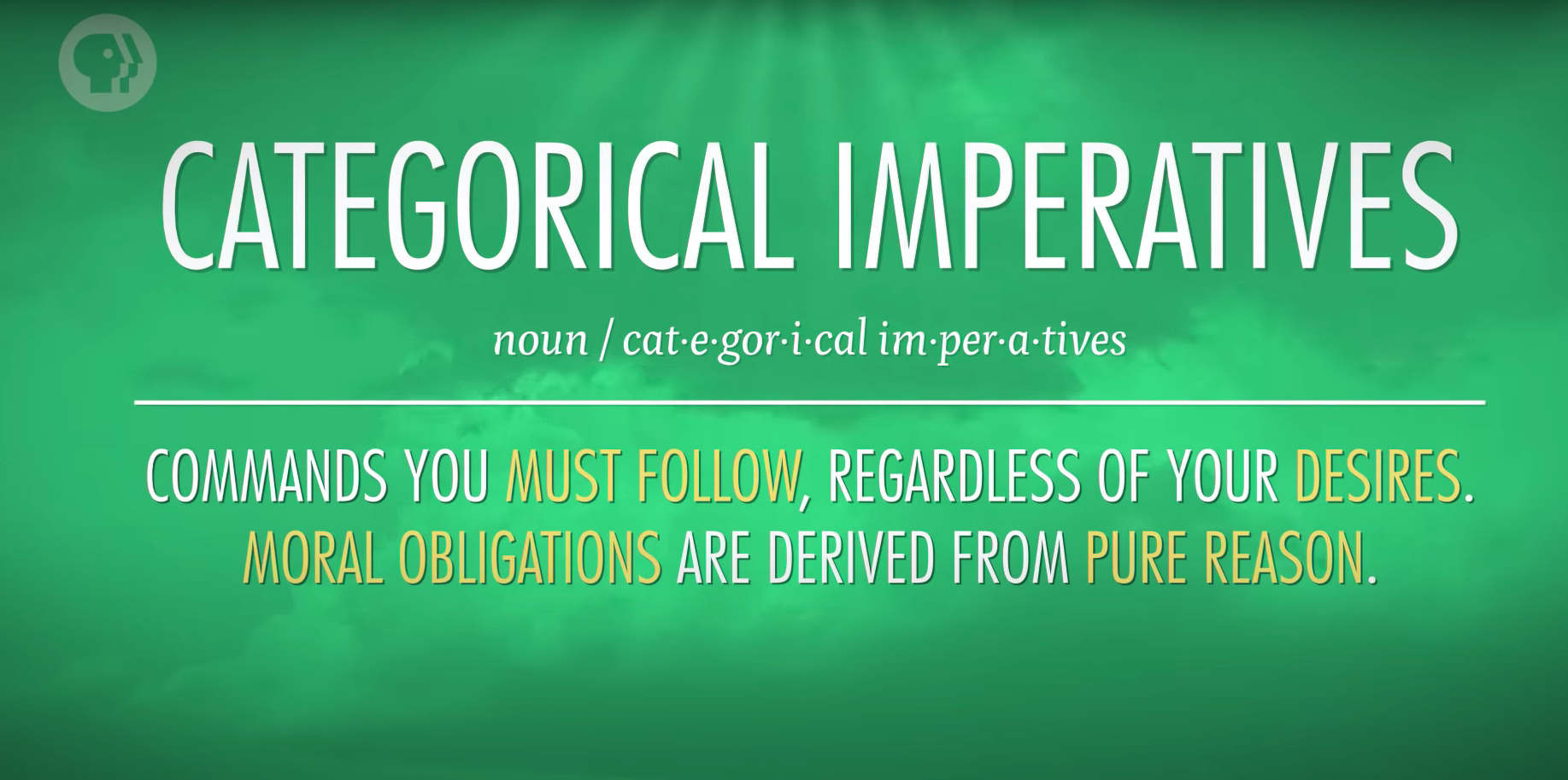The History of Categorical Imperatives
The idea of categorical imperatives was first introduced by Immanuel Kant, a philosopher from the 1700s. He is best known for his philosophical works, Critique of Pure Reason and The Metaphysics of Morals, among others. As outlined in the video above, Kant is most famous for his ideas on a person's unconditional moral obligation, known as the categorical imperative. Kant defines categorical imperatives as commands or moral laws all persons must follow, regardless of their desires or extenuating circumstances. As morals, these imperatives are binding on everyone. One of Kant’s categorical imperatives is the universalizability principle, in which one should "act only in accordance with that maxim through which you can at the same time will that it become a universal law.” In lay terms, this simply means that if you do an action, then everyone else should also be able to do it.
In Kantian philosophy, a truly good act is one that can become a universal law; a merely self-serving act is by nature not generalizable and thus, nonexistent in a Kantian universe. This principle has its merits from an ethical standpoint, and IRB reviewers continually weigh the proposed activities in research studies and their risk to human participants against precedents set by previous studies. Additionally, the IRB seeks to uphold its researchers to the same standards, leading to the creation of institutional and federal policies. However, there are some cases in which the universalizability principle does not always apply.
Scrutinizing the Universalizability Principle
In theory, the universalizability principle sounds like a good idea. But what happens if you wanted to violate a moral law for a good cause?
First, imagine a world where every action was generalizable; every action can be replicated by everyone. For example, if one person stole an item and got away with it, then everyone could steal items in the same way without repercussions. Follow this train of logic to its end, and you would have a world with constant theft and some serious trust issues! In this case example, Kant’s universal law as the basis for morality is logically sound; the universalizability principle would eliminate petty theft, which society acknowledges as morally wrong.
Now, imagine being under a universalizability principle where no one could lie. At first, it sounds pretty great. Salespeople would have to be upfront about their products, even if they were second-rate, and people couldn’t lie about crimes they committed. But what about white lies? For example, you could not surprise a friend with a party; instead, you would have to be upfront and tell the truth, ruining the surprise! Taking it a step further, perhaps you knew a friend was keeping a new relationship secret from a disgruntled ex-partner. The ex-partner confronts you and asks if the friend has started dating someone new. You know that if you tell them the truth, the ex-partner may seek to sabotage your friend's new relationship.
Kant would argue that under the universalizability principle, you cannot lie to your friend’s ex, as this action is inherently self-serving and thus not generalizable. Instead, Kant would suggest two options: refuse to answer the question or tell the truth. Under Kantian law, you would not be responsible if the ex-partner sought to ruin your friend’s relationship, because the ex was acting outside of the universalizability principle (seeking to sabotage). Yikes!
This is a pretty bleak situation and provides evidence for how Kantian logic falls outside of social norms. However, this example lends itself well to a discussion of research regulations regarding deception in research studies and case-by-case review. For now, this ends part one of Categorical Imperatives and the Case for Deception; next week, we will examine how deception plays out in research settings, and how IRB reviewers and ethical researchers may justify cases in which they intentionally deceive participants.
Resources
Below are the resources linked throughout the text:
- Kant's Moral Philosophy: https://plato.stanford.edu/entries/kant-moral/
- Categorical Imperatives: https://www.britannica.com/topic/categorical-imperative
- The Categorical Imperative is Not the Golden Rule: https://www.qcc.cuny.edu/socialsciences/ppecorino/medical_ethics_text/Chapter_2_Ethical_Traditions/Categorical_Imperative.htm#:~:text=Kant's%20improvement%20on%20the%20golden,it%20were%20a%20universal%20law.
- PBS Crash Course Kant & Categorical Imperatives: https://www.youtube.com/watch?v=2Co6pNvd9mc
